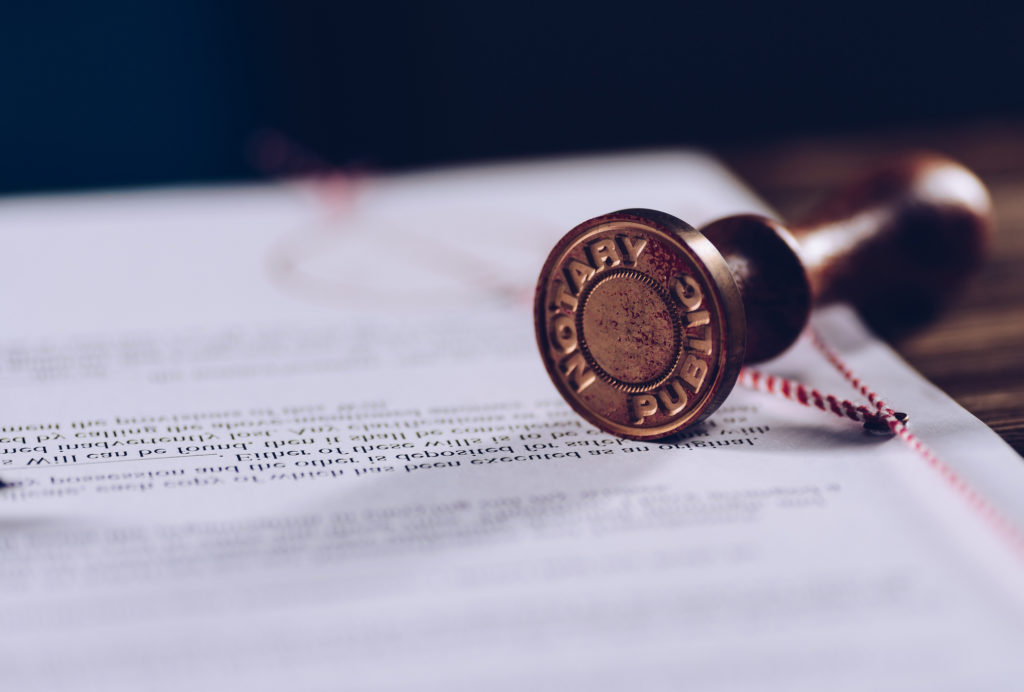Debunking Notarial Job: Simplifying the Role and Significance of Notaries
In the intricate web of lawful documents and verification, notaries stand as columns of assurance and credibility. Their role, frequently shrouded in mystery for many, carries substantial weight in guaranteeing the validity and honesty of important records. As guardians of legitimacy and fact, notaries play an essential component in our society, yet their job is not always fully understood. By unwinding the complexities losing and bordering notarial techniques light on the relevance of their acts, a clearer understanding emerges of the essential role notaries play in upholding the textile of lawful and legal contracts.
The History of Notarial Job
How did notarial work evolve over time to come to be an important component of lawful and company deals? The history of notarial job dates back to ancient civilizations, where scribes played a vital role in videotaping crucial info and confirming papers. As cultures advanced, the need for a more formalized system to ensure the legitimacy of arrangements occurred. This brought about the development of notaries, individuals designated by the state to serve as neutral witnesses in legal matters.
During the Middle Ages, notaries acquired prestige in Europe, with their functions expanding to consist of preparing legal documents, certifying signatures, and maintaining documents. The increase of global profession further highlighted the importance of notarial work in validating contracts and agreements across borders.
In the modern era, notaries remain to play a vital function in legal and business purchases by confirming identities, validating the credibility of files, and avoiding scams. Their role in licensing the legitimacy of arrangements adds a layer of safety and depend the ever-evolving landscape of business and legislation.

Responsibilities and Responsibilities of Notaries
Notaries play a vital function in verifying the credibility of records and the identity of notaries. One of their key duties is to witness the signing of crucial documents, such as contracts, deeds, and wills, to make sure that all parties are getting in right into contracts knowingly and willingly.
In addition, notaries are tasked with carrying out vows and affirmations, which are critical in lawful proceedings and the execution of testimonies. They certify copies of initial documents, supplying assurance to organizations that the duplicates are true reproductions of the originals. Notaries need to maintain accurate records of all transactions they manage to guarantee transparency and liability. Generally, the tasks and duties of notaries are necessary in guarding the honesty and legality of numerous records and purchases.
Notarial Certificates and Signatures
Exemplifying thorough attention to detail, notarial certificates and trademarks act as crucial parts in confirming the credibility of lawful documents. Notarial certificates typically include vital info such as the date of notarization, the names of the signatures, a summary of the record, and the notary's main seal. These certificates provide a clear record of the notarial act, guaranteeing that the document can be conveniently determined and traced back to the notary who oversaw the procedure.
Signatures play a critical function in notarial work, as they symbolize the agreement and permission of the parties entailed. Notaries thoroughly witness the signing of documents to confirm the identity of the notaries and validate that they are authorizing of their own free will. By attaching their official seal and trademark to the document, notaries accredit that the required procedures have been followed and that the document is enforceable and valid.
Basically, notarial certificates and trademarks are the trademark of credibility in legal deals, offering guarantee to all parties included that the documents are legit and binding.
Importance of Notarial Acts

Registration Process Discussed
Describing the notarization process provides clarity on the vital steps entailed in confirming lawful papers. The registration procedure commonly starts with the private presenting the file to a notary public. The notary then confirms the signer's identity with acceptable identification methods. When the identity is confirmed, the notary ensures that the specific signing the record does so voluntarily and without any type of browbeating.

Verdict

Notarial certifications normally include critical information such as the day of registration, the names of the notaries, a summary of the record, and the notary's main seal. These certificates offer a clear record of the notarial act, making certain that the document can be quickly identified and mapped back to the notary that oversaw the process.
By fastening their official seal and signature to the file, notaries accredit that the needed procedures have been complied with and that the paper is navigate here enforceable and legitimate.
By verifying the identity of the signatories, verifying their desire to enter into the contract, and accrediting the date and place of the finalizing, notaries play an essential role in maintaining the credibility of legal files.After the document is authorized, the notary will certainly affix their official seal or stamp onto the paper.